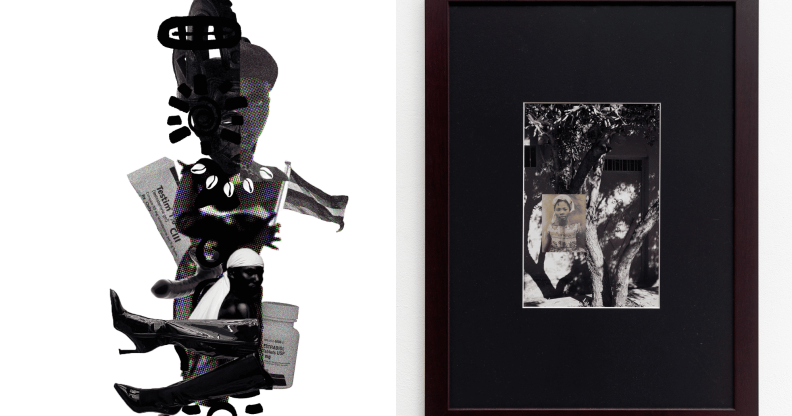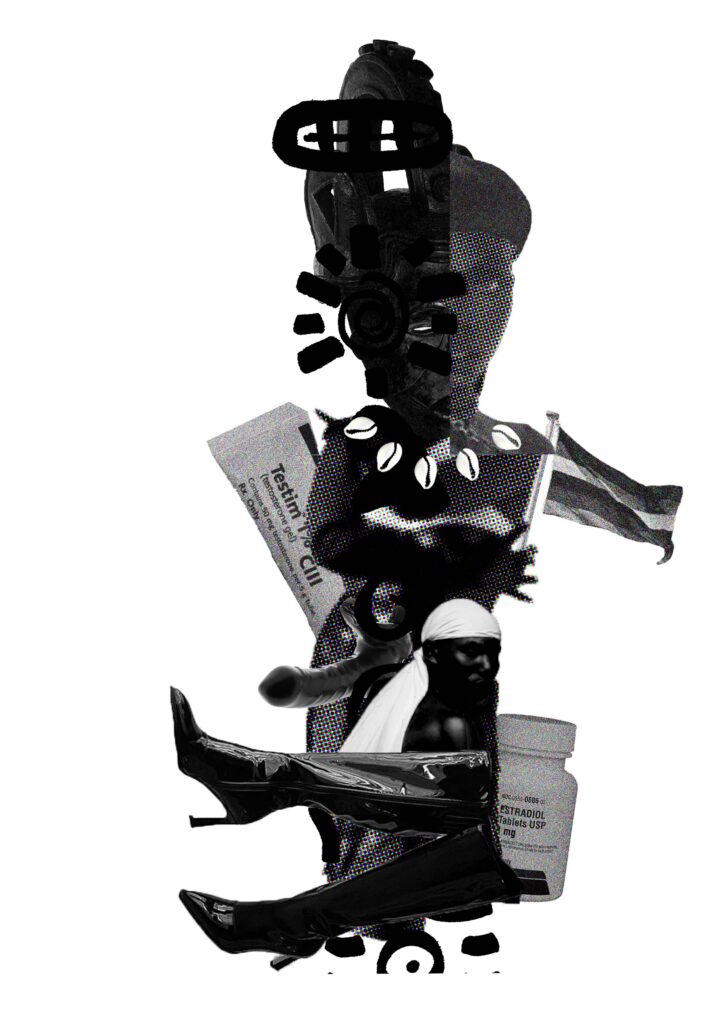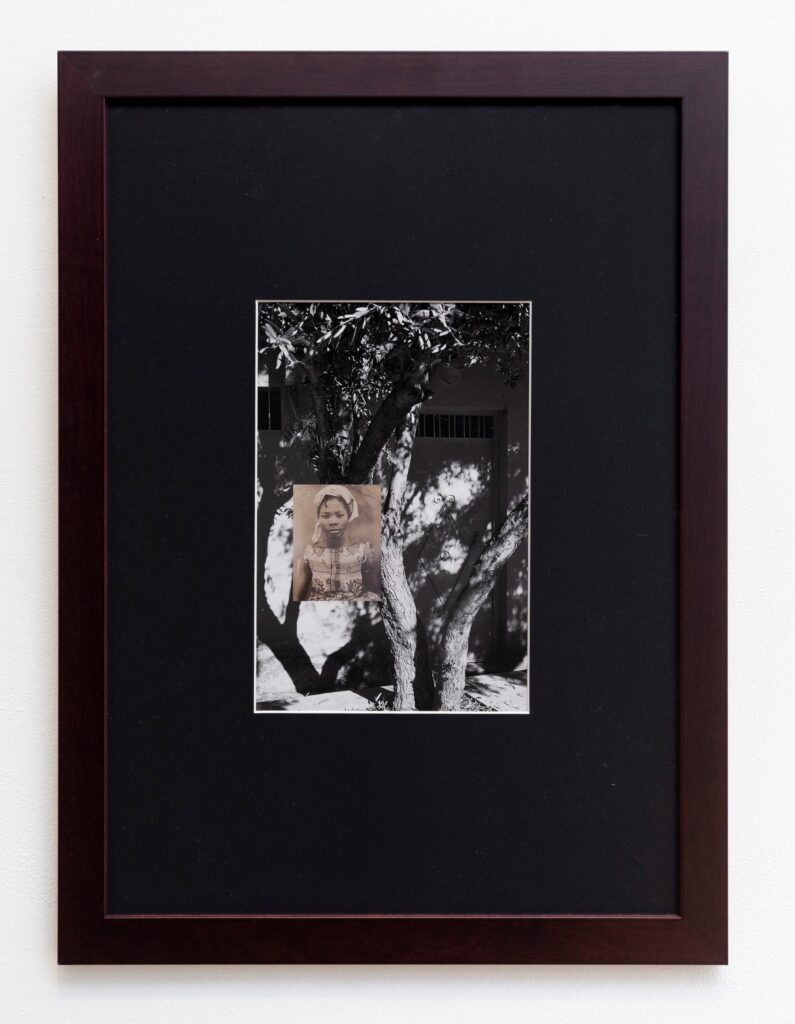New exhibition celebrates 40 years of Black, British art while shining light on queer history

Left: Untitled, 2018, by Chiizii. Right: This Changes Everything 2022 by Rachel O-Williams, image courtesy of Cooke Lathamm Gallery and Ben Deakin.
After spending lockdown discovering Black British art online, Pacheanne Anderson is bringing their curated exhibition Transforming Legacies to the Black Cultural Archives.
Founded in 1981 and now based in Windrush Square in Brixton, the Black Cultural Archives (BCA) is an independent heritage museum wanting to “preserve and celebrate the histories of people of African and Caribbean descent in the UK”.
“It’s not the type of institution that usually welcomes my generation,” Anderson, the 27-year-old curator, says of the BCA.
But, they add, “it’s really important they should be bringing in younger artists and creatives and historians who are working and living in south London to use that space”.
When the BCA gave Anderson the freedom to create the exhibition in their vision, they knew they wanted to cover the past, present and future of Black British art.
Their ambitious programme will look back over the past 40 years, delving into art and artists that have made their mark, those who have been forgotten by time, and new talent that’s emerging on the scene.

Untitled, 2018, by Chiizii.
The thing that surprised Anderson the most while they were researching artists and art to include in the exhibition was what was missing from the archives.
“One of the first things I wanted to do curatorially without a shadow of a doubt was to engage with queer Black British history,” he explains.
“That is definitely something that has been washed out of our Black British art history.
“Until the last year or so there were certain artworks I would never see, like Ajamu [X, the artist known for his photos of Black queer bodies and sexuality].
“And then there are so many films by queer African and Caribbean artists that are not available even now.”
Anderson’s eyes were opened to how things have changed over the past few decades after discovering an old interview with Ajamu in the Black Cultural Archives.

This Changes Everything, by Rachel O-Williams. (Cooke Lathamm Gallery and Ben Deakin)
“He was unable to show certain types of images because they are very gay. Having Black lewd male gay figures in the ‘80s, and especially ones that were a bit more sexually charged, was just not allowed,” Anderson says.
Anderson approached Ajamu to be part of the upcoming exhibition to which he agreed, and he hopes the show can form part of a wider movement to reclaim space for queer artists.
Black artists, especially when they’re working in abstract ways, are much less received by the art market.
At the core of Anderson’s work is the wish to platform demographics and art styles that are seldom seen on the art scene, such as his most recent exhibition, (Dis)embodied Burdens.
That exhibition, featuring several Black female artists, “highlights and reimagines identity through a display of diverse contemporary feminist perspectives on the effects of physical and emotional stress on women’s minds and bodies”.
“A lot of the time when you get works by Black female artists there’s a weird misunderstanding of what Black female identity is,” they explain, “because it is quite fractured and fragmented.”
He continues: “I wanted to work with artists that were looking at their own identity in more abstract ways, as a comment to the fact that Black artists, especially when they’re working in abstract ways, are much less received by the art market.”
Similarly, Transforming Legacies by its very nature has an underlying political and social message woven into its fabric, but for Anderson, it is more than that.
Artists represented include Chiizii, Jaffar Aly, Karis Beaumont, Rhiana Bonterre and Miya Brown (Blk Geezer). There is a strong showing for queer artists, but not all of their work explores queer themes.
“I don’t necessarily want people to pick up on certain themes or know that a third of the artists are queer,” he admits, “I just want people to be across three rooms of really different artworks made by Black people that have different forms of expression.”
He concludes: “I think it’s important to show all the people coming to the show that Black artists are also allowed to just have fun. They can make their work about whatever the hell they want.”
Transforming Legacies will be running at Black Cultural Archives from 27 October to 29 January. More information on how to visit is here.

